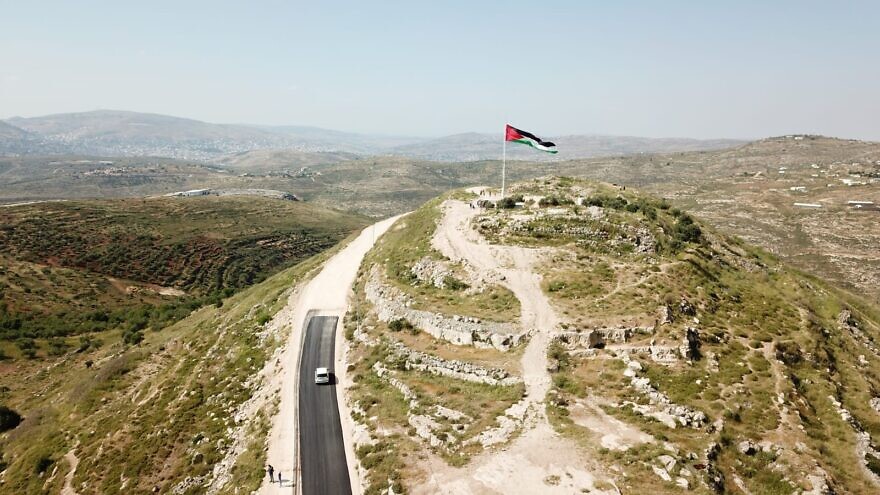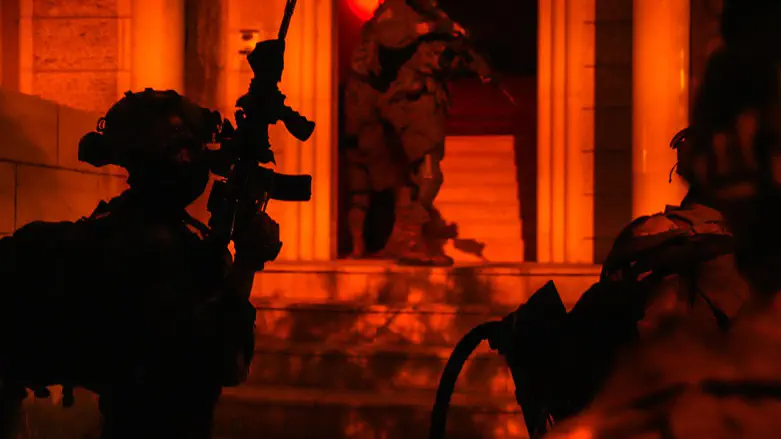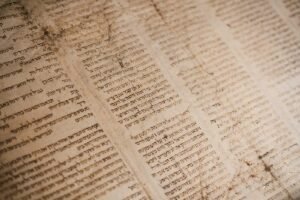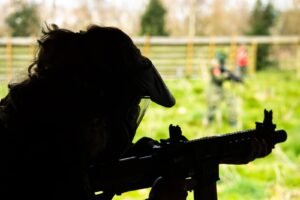Dramatic drop in illegal Palestinian construction in Area C
[ad_1]
The Regavim movement, an organization dedicated to the protection of Israel’s national lands and resources, released a comprehensive report this week showing an unprecedented decline in illegal Palestinian construction in Area C of Judea and Samaria.
This marks the first time in a decade that illegal construction has dropped, accompanied by increased enforcement by Israel’s Civil Administration.
Regavim’s research division recently completed its analysis of a full aerial survey, comparing photographs taken in May 2024 to those from June 2023. After anchoring each structure to precise GPS coordinates and creating a layered map of all structures in the region, Regavim’s analysts computed the differential. The results show an overall increase of 2,868 illegal structures over the 11-month period between the surveys, but the monthly average of construction starts—260—represents a significant decline from the previous years (2018–2023), marking a drastic drop in the pace of construction.
Regavim credits this reduction in construction to a shift in the Civil Administration’s enforcement strategy, which now targets larger, permanent structures in key locations, such as highways and strategic points along the seam-line buffer zone, rather than smaller, temporary ones. According to Regavim, “A plausible explanation for the significant reduction in new illegal constructions can largely be attributed to the strategic selection of enforcement cases by the Civil Administration.”
This shift in strategy signifies a new approach compared to previous years, with a clear focus on demolishing high-impact structures.
The report states that in the first 10 months of 2024, the Civil Administration demolished 602 illegal Arab-built structures in Area C, compared to only 306 in all of 2023.

Naomi Kahn, director of Regavim’s international division, told JNS, “These high-profile demolitions have had a deterrent effect, signaling to the Palestinian Authority and its international supporters that Israel now views illegal construction as a clear and imminent security threat. This contrasts with previous years, when demolitions focused on pre-fabricated and low-cost structures, such as animal pens and other less significant types of construction.”
Kahn added, “This change in policy, long advocated by Regavim, has gained increasing support from Israeli legislators since the October 7 attack, which was facilitated by similar dual-use illegal structures near the Gaza border.”
Echoing this sentiment, Bezalel Smotrich, the head of the Religious Zionism Party and finance minister, who also oversees the Civil Administration in Judea and Samaria, commented on the efforts to curb illegal construction: “Monitoring the open areas in Judea and Samaria is a task of national importance. I am proud of the reform led by my staff in the Settlement Administration at the Defense Ministry, as well as the Civil Administration members who work week after week to monitor the open areas, including tracking and demolishing illegal construction.”
Smotrich added, “Arab illegal construction has become systematic and serves as a tool to promote the Fayyad Plan—named after former Palestinian Authority Prime Minister Salam Fayyad—that aims to establish a de facto Palestinian state.”
He continued, “On the other hand, the supervision and enforcement unit operates according to an organized and strategic work plan, and has exercised enforcement against hundreds of agricultural infiltrations and illegal buildings in recent months in order to halt their progress and prevent the illegal takeover. The work is arduous and ongoing, but it has yielded excellent achievements over the past year. We continue these efforts with even more vigor to ensure that the results will be even more powerful.”

Maurice Hirsch, director of the Initiative for Palestinian Authority Accountability and Reform at the Jerusalem Center for Security and Foreign Affairs and former director of the Military Prosecution for Judea and Samaria, told JNS: “Since the Palestinian Authority began implementing the plan of former Prime Minister Salam Fayyad to promote intentional land grabs in Area C, Palestinians have built tens of thousands of structures without receiving building permits. Shamefully, this illegal activity has been supported not only by the PA, but also by U.N. organizations and the European Union.”
Hirsch added, “While Israeli authorities consistently failed to combat this phenomenon, the problem was not a lack of legal justification but a lack of desire. If Israel seeks to prevent this situation from repeating itself long term, it must implement effective and consistent law enforcement, along with a zero-tolerance policy towards foreign actors aiding and abetting the lawlessness.”
Regavim Director General Meir Deutsch said, “The data confirms what had been a general impression among people who know the terrain well: there has been a refreshing shift in the battle for land.”
Deutsch added, “Just as the State of Israel was essentially established long before 1948 and simply declared on Independence Day, the ‘State of Palestine’—although never declared or legally recognized—is being established on the ground daily.”
He continued: “Over the years, Israeli governments have ignored this fact, allowing the Palestinian Authority to create facts on the ground through massive construction, agricultural projects, and roadworks. The new data prove that, at last, the Israeli government is taking the action that the majority of Israeli voters have mandated and is systematically addressing this threat. We hope to see this trend continue and even intensify.”

While this year’s figures show a decrease in the pace of land takeovers, Regavim says the long-term trend continues to rise. According to the report, “The Palestinian Authority has now constructed 97,581 illegal structures in Area C of Judea and Samaria, an area fully governed by Israeli civil and security forces. Aerial imagery clearly shows that the PA has prioritized building, agricultural, and infrastructure projects in Area C instead of developing Areas A and B, aligning with the 2009 Fayyad Plan’s aim to establish a Palestinian state across all of Judea and Samaria.”
Kahn responded to this trend, telling JNS, “The drastic drop in the rate of construction, though most welcome, is not enough: illegal Arab construction in strategic locations continues, albeit at a slower pace, and there are currently more than 97,500 illegal Arab structures that serve as the front lines in the Palestinian Authority’s war of attrition—a war to establish a de facto Palestinian state in the heart of the Land of Israel, which poses an existential danger to every man, woman, and child in the region.”
[ad_2]
Source link













